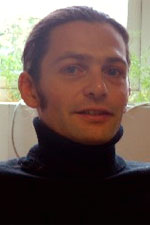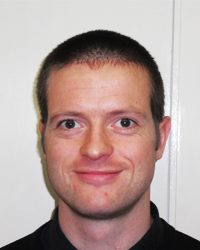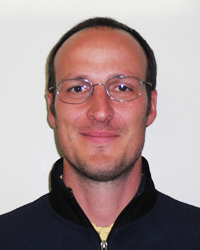Plymouth Marine Laboratory (PML) is an independent, impartial provider of scientific research and contract services relating to the marine environment. PML is a company limited by guarantee with charitable status and employs ~150 people.
PML has world-class research capacity in global Earth Observation, ecosystem modelling, and marine ecosystem functioning. Its core research programme contributes to the issues of climate change, marine pollution and sustainability. PML’s research is highly innovative, relevant and applicable, feeding into national and international marine and coastal programmes in anticipation of societal needs. Recognised internationally for delivering world-class science, PML’s capabilities include data collection and analysis, field and laboratory experiments, environmental impact assessments, satellite observation, ecosystem modelling, method and tool development, socio-economic evaluation, programme co-ordination, policy advice and capacity building. PML’s long term objective is the sustainability of the marine ecosystem as climate regulator; a source of food, water, renewable energy, and livelihoods; and as a contributor to human health and prosperous human societies.
PML has a long history of Earth Observation applications, software development and data processing for national, European Commission and ESA projects. Activities range from scientific research and development (algorithms, models, etc) to reprocessing/reanalysis, and from near real-time and climate-quality/delayed-mode data provision to cutting-edge large scale data distribution and visualisation.
PML RSG conducts Global ocean colour analysis, algorithm development and validation for ocean biogeochemistry, data assimilation, ecosystem modelling and reanalysis. This is exemplified as a partner in the NERC National Centre for Earth Observation (NCEO) that was formed in 2008 from an amalgamation of seven Centres of Excellence in Earth Observation, including the PML- led Centre for observation of Air-Sea Interactions and Fluxes (CASIX). It brings together over 100 researchers from 26 UK universities and research centres and has a budget of £33M with a new five-year programme being constructed. PML lead the Carbon Cycle Theme, which combines expertise on ocean colour analysis, ocean biogeochemistry, data assimilation, ecosystem modelling and reanalysis. NCEO is currently formulating its priorities for the next five years (i.e. 2014-2019) and ocean colour work is likely to focus on novel algorithms and data assimilation.
 Gavin Tilstone has extensive experience in satellite validation studies in both open ocean (case 1) and coastal (case 2) waters; critically evaluated operation algorithms in diverse environments; internationally recognised in MERIS validation and has an excellent publication track record. He will manage PML research activities. He has published >50 peer reviewed publications with 20 as first author. Since 1997 he has participated in >25 International and EU research projects, in which he worked on marine optics and the validation of satellite ocean colour algorithms. He has considerable management experience as both PI, Co-I and workpackage leader on these projects.
Gavin Tilstone has extensive experience in satellite validation studies in both open ocean (case 1) and coastal (case 2) waters; critically evaluated operation algorithms in diverse environments; internationally recognised in MERIS validation and has an excellent publication track record. He will manage PML research activities. He has published >50 peer reviewed publications with 20 as first author. Since 1997 he has participated in >25 International and EU research projects, in which he worked on marine optics and the validation of satellite ocean colour algorithms. He has considerable management experience as both PI, Co-I and workpackage leader on these projects.
Role in the project: WP400 manager.
 Bob Brewin has experience validating ocean-colour products with in situ data in a variety of open- ocean waters (e.g. Atlantic Ocean and Red Sea). He has experience using above-water radiometry (on Atlantic Meridional Transect cruises) and has developed software and techniques to process radiometric data. He has experience with development and testing of ocean-colour algorithms using different statistcal metrics. He has published over 30 peer-reviewed publications with 15 as first author. He was a funded post-doctoral fellow of the European Space Agency, and has experience working on ESA contracts such as the Ocean-Colour Climate Change Initiative. Role in the project: WP400 Senior scientist.
Bob Brewin has experience validating ocean-colour products with in situ data in a variety of open- ocean waters (e.g. Atlantic Ocean and Red Sea). He has experience using above-water radiometry (on Atlantic Meridional Transect cruises) and has developed software and techniques to process radiometric data. He has experience with development and testing of ocean-colour algorithms using different statistcal metrics. He has published over 30 peer-reviewed publications with 15 as first author. He was a funded post-doctoral fellow of the European Space Agency, and has experience working on ESA contracts such as the Ocean-Colour Climate Change Initiative. Role in the project: WP400 Senior scientist.
 Giorgio Dall’Olmo has experience validating ocean-colour products with in situ data in open-ocean waters. He has extensive experience collecting and analysing above-water radiometry as well as measurements of inherent optical properties in both open-ocean and turbid productive waters. He has experience developing remote-sensing algorithms with a special focus on turbid productive waters. Role in the project: WP400 Senior scientist.
Giorgio Dall’Olmo has experience validating ocean-colour products with in situ data in open-ocean waters. He has extensive experience collecting and analysing above-water radiometry as well as measurements of inherent optical properties in both open-ocean and turbid productive waters. He has experience developing remote-sensing algorithms with a special focus on turbid productive waters. Role in the project: WP400 Senior scientist.
 Ben Calton brings over 15 years’ experience as a developer of webbased technology and in management and delivery of commercial projects. He has extensive knowledge and experience of user interface and user experience design, and he uses this to lead the web visualisation team in producing insightful and engaging web based tools. He has successfully delivered large projects for a broad range of national and international companies, including Lotus Cars, Haymarket, and AGCO. Role in the project: WP400 Senior consultant.
Ben Calton brings over 15 years’ experience as a developer of webbased technology and in management and delivery of commercial projects. He has extensive knowledge and experience of user interface and user experience design, and he uses this to lead the web visualisation team in producing insightful and engaging web based tools. He has successfully delivered large projects for a broad range of national and international companies, including Lotus Cars, Haymarket, and AGCO. Role in the project: WP400 Senior consultant.

